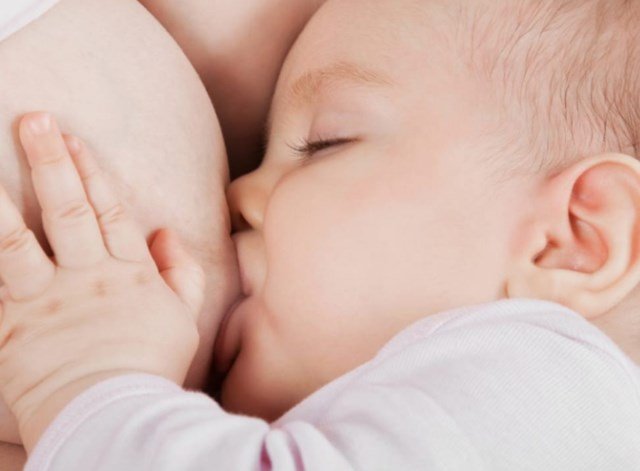One of the most feasible methods to feed and nourish your baby when he is breastfeeding is breast milk. Apart from the fact that it is a practical method of feeding, because you simply won’t have to carry so many things in a bag or diaper bag at the time of going out, either for enjoyment or to go to the doctor, you can feed your baby whenever he needs it with milk very fresh and of good quality.

Benefits offered by breast milk for the baby.
Pediatricians recommend breast milk as a priority and more than anything in the first days of birth, the mother should only have a balanced diet rich in vitamins that help strengthen the growth of the baby. In addition, the mother should avoid copious, junk and gas-producing foods as it is fatal for both the baby and her. Among the benefits, we list some of them: It helps to stimulate the physical and mental growth of the boy or girl. There is no better product on the market to replace breast milk, since it is considered the only source full of vitamins, fat, sugars, water and minerals that favor the well-being and health of the baby. Breast milk transmits good defenses in your system, providing antibodies that prevent diseases such as diarrhea, asthma, allergies, pneumonia and other respiratory conditions. Because it is a natural product, it makes it easy for the baby to digest, helping it not to have colic. If you are well fed you will not suffer from malnutrition. Increases and develops the psychomotor part (brain), facilitating a better intelligence to have a better development in the study. It keeps the child hydrated due to its dense range of electrolytes and liquids. Develop clear language at an early age. Its daily intake strengthens your body avoiding future diseases such as obesity, leukemia, diabetes, cardiovascular diseases, among others. It protects the teeth since its contribution in calcium makes it easier to have healthy teeth. Strengthens the family bond between the mother and the baby. Contribute in some way to family savings.
Benefits for the mother when breastfeeding her baby.
All mothers who breastfeed their child from the early hours of birth obtain the best benefits for their health. Breastfeeding offers the following: Helps prevent breast, ovarian and uterine cancer thanks to the oxytocin produced by breastfeeding. In the postpartum period it helps protect you from hemorrhages. By eating a balanced diet, you can regain your previous weight or, better yet, lose weight. It strengthens the emotional ties between the family. If you have to work outside the house, you can express the milk with special suction pumps, storing the milk in plastic containers. As a particular recommendation, keep the milk in the fridge for less than 48 hours, it will remain in good condition and when giving it to the baby, heat it in a bain-marie, remember that you should only warm it. Reduces stress, keeps blood pressure low, prevents depression and anxiety. It lowers the long-term risk of diabetes and heart disease. Increase your minimum value to tolerate pain. Mothers can breastfeed in the position that is most comfortable for them and in any place that is hygienic. Their diet is varied and natural, you can eat grains, fruits, vegetables, sardines, milk, water, legumes, among others.
Basic recommendations that the breastfeeding mother should not do.
The breastfeeding period goes by quickly, you should only breastfeed your baby from the moment he is born until he is 6 months old, from there the pediatrician will recommend giving him soups, fruits, porridge, juices, cereals and continue breastfeeding until he is 2 years old. These recommendations are: The mother should not smoke or ingest alcoholic beverages and other drugs that can affect the baby’s health. Make sure your baby sleeps next to you or near your bed so you can sleep 8 hours or more, make sure that breastfeeding doesn’t interrupt your rest. Do not wear tight and thick clothes, try to wear loose and light dresses. Do not stop showering, body hygiene is essential and this way you will keep your breasts clean and hydrated. If you have a fever and your breasts are red, do not breastfeed your child, the ideal is to go see a doctor. In lactation cracks, cuts or fissures may appear in the nipple and areola, if this is your case you can apply your own milk and put yourself in the sun, you can also apply moisturizing creams that are neutral and once you go to breastfeed the baby wash the area with soap and water. If the breasts are very full of milk and are hot, put cold water cloths in the area and make the child suck as much as possible or you can express the milk with a device. If small cysts or hard balls form in the chest, massage around the chest and put the baby to suck.
